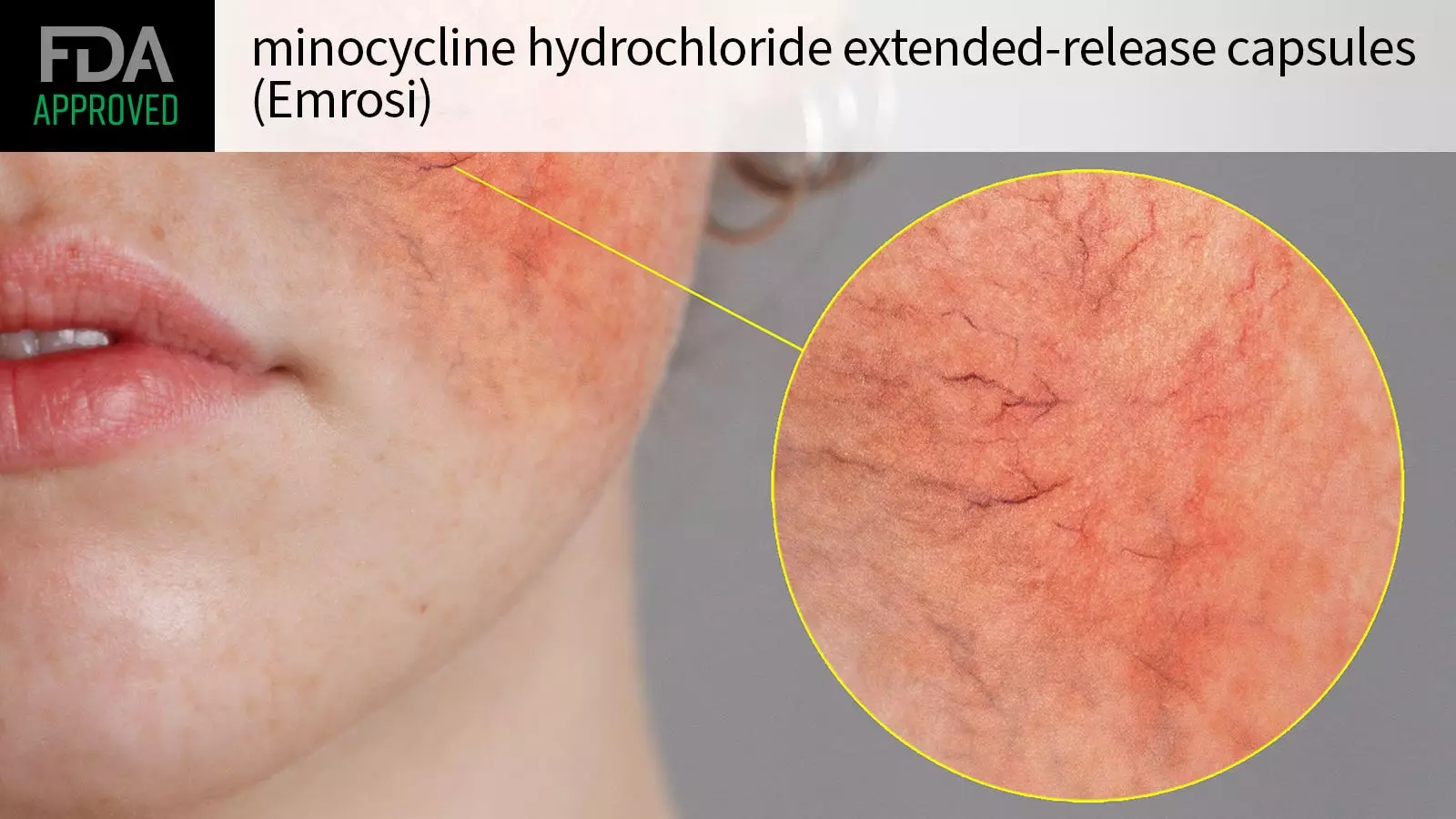On Monday, Journey Medical announced that the U.S. Food and Drug Administration (FDA) has granted approval for the extended-release formulation of minocycline hydrochloride, branded as Emrosi. This tetracycline antibiotic has been specifically approved for the treatment of inflammatory lesions associated with rosacea in adults, marking an important advancement for those grappling with this challenging skin condition.
The approval of minocycline hydrochloride for treating rosacea is rooted in robust data derived from two comprehensive phase III clinical trials, identified as MVOR-1 and MVOR-2. These studies collectively involved 653 adult participants diagnosed with papulopustular rosacea. The trial design was rigorous, involving a randomization process where subjects received either a daily dose of 40 mg minocycline hydrochloride, the standard treatment doxycycline, or a placebo over a 16-week period.
At the start of the trials, participants displayed an average of 25 inflammatory lesions, along with a significant Investigator’s Global Assessment (IGA) score ranging from 3 to 4—indicating moderate to severe manifestations of the disease. The results were promising, showing that individuals on minocycline hydrochloride experienced a much higher rate of treatment success, illustrated by an IGA score improvement to 0 or 1 (denoting clear or nearly clear skin). Specifically, in the MVOR-1 trial, 65% of those on minocycline achieved this goal compared to 46% on doxycycline and 31% on placebo. Similar outcomes were observed in MVOR-2, further validating the drug’s effectiveness.
Despite the encouraging results, it is critical to highlight the potential side effects associated with minocycline hydrochloride. The most common adverse event reported during the trials was dyspepsia, affecting 2% of patients, while none in the placebo group experienced this issue. Given these results, the prescribing information comes with explicit warnings about the risk of drug resistance, mandating that minocycline hydrochloride should only be utilized as indicated and under proper circumstances.
Additionally, the labeling outlines significant contraindications, particularly for individuals with a known allergy to tetracyclines, as well as warnings regarding serious side effects including skin reactions and central nervous system effects. The potential implications for pregnant women and children are particularly concerning, with risks of permanent teeth discoloration or inhibited bone growth.
Looking forward, Journey Medical anticipates that the new formulation of minocycline hydrochloride will be available to patients in the first half of 2025. This development might offer a new avenue of hope for individuals suffering from rosacea, particularly those who have not responded well to existing treatment options. As the approval of this medication unfolds, it will be essential for healthcare providers to weigh the benefits against the risks, ensuring that patients receive the optimal care necessary for managing this condition effectively.

